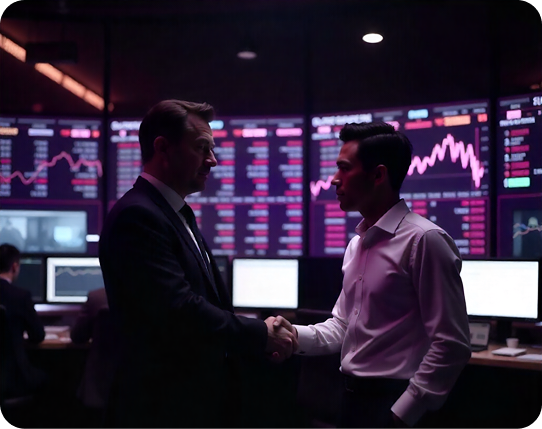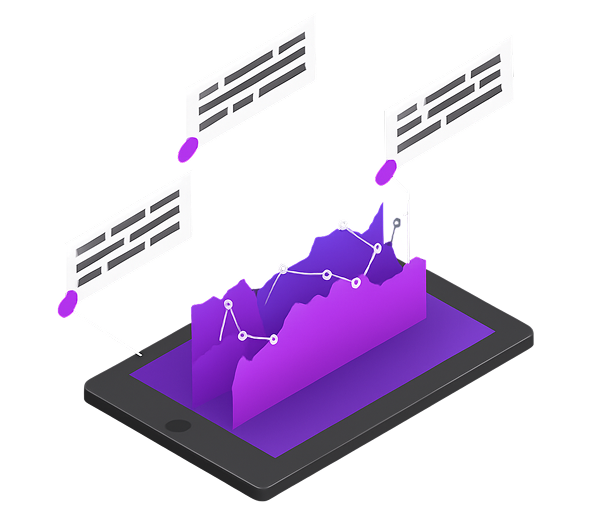What Is a Funded Trader Program and Why It Matters in Modern Markets
Understanding the Concept of a Funded Trader
A funded trader is an individual who receives access to a funded trading account from a proprietary trading firm (often called a prop firm) in order to trade with the firm’s capital. Instead of risking all their personal savings, the trader operates with the company’s money under clear rules and keeps a percentage of the profits. This model has transformed the opportunities available to traders in the financial markets, making professional trading accessible to people worldwide.
The idea of funded trading is appealing because it reduces personal exposure to loss while offering a real chance to earn income. For traders with strong trading skills but limited personal funds, a prop trading firm acts as the bridge between talent and capital. As long as the trader respects risk management and proves consistency, the relationship benefits both sides.

How Proprietary Trading Firms Work
A funded trader is an individual who receives access to a funded trading account from a proprietary trading firm (often called a prop firm) in order to trade with the firm’s capital. Instead of risking all their personal savings, the trader operates with the company’s money under clear rules and keeps a percentage of the profits. This model has transformed the opportunities available to traders in the financial markets, making professional trading accessible to people worldwide.
The idea of funded trading is appealing because it reduces personal exposure to loss while offering a real chance to earn income. For traders with strong trading skills but limited personal funds, a prop trading firm acts as the bridge between talent and capital. As long as the trader respects risk management and proves consistency, the relationship benefits both sides.
Why Funded Trading Has Become Popular
In the last decade, the rise of online trading platforms and the global accessibility of financial markets have fueled the growth of funded trading programs. Aspiring traders no longer need to work for a large bank or hedge fund to access significant capital. Instead, they can apply to a funded trader program, demonstrate consistency in a simulated environment, and gain access to live trading accounts.
For many, this pathway is attractive because it bypasses the need for large initial investments. It is especially relevant for traders in regions where personal access to forex or stocks is limited. The prop trading firm model opens the door for talented individuals worldwide to turn their skills into a professional career in trading.

Trading Skills Required for Success

Technical Analysis

Technical Analysis

Emotional Discipline
Although the opportunity is real, becoming a successful funded trader is not easy. Firms are selective, and only traders with strong trading skills pass the evaluation process. These skills include technical analysis, risk management, and emotional discipline. Traders must show that they can follow clear rules, adapt to market movements, and maintain discipline under pressure.
The most successful participants are those who treat trading like a professional business. They use structured trading strategies, test their systems in different markets, and constantly refine their methods. Without this level of preparation, access to funded accounts often ends quickly.
Risk and Capital Management
Every funded trading account comes with strict risk parameters. A trader may have access to $100,000 in capital, but they are usually not allowed to potentially lose more than 5 -10% of the account. These rules protect both the firm and the trader. The risk limits are not meant to restrict but to instill discipline.
For example, in forex or futures trading, sudden volatility can erase an account if unmanaged. With enforced rules, traders learn to size positions correctly, set stop losses, and aim for a sustainable profit target. This structure creates longevity and prepares them for real challenges in the financial markets.

The Role of Trading Platforms and Markets

Access to professional-grade trading platforms is one of the key advantages of working with a prop firm. Unlike retail platforms, these systems provide fast execution, deep liquidity access, and often multiple markets – including stocks, forex, and derivatives.
This variety allows traders to either focus on specific markets or diversify their strategies across several markets.. A trader who focused on stocks might use momentum strategies, while another may trade forex pairs during major sessions. Others focus on futures trading, leveraging contracts tied to commodities, indices, or bonds. By diversifying across markets, funded traders not only reduce risk but also expand profit potential.
Inside a Funded Trader Program:
Rules, Challenges, and Growth
What Is a Funded Trader Program?
A funded trader program is the structured pathway offered by a proprietary trading firm that allows traders to prove their abilities before managing significant funded accounts. Unlike retail trading, where individuals risk their personal capital, these programs evaluate whether traders can operate under clear rules with the firm’s money.
Most programs are divided into two stages: a challenge phase and a verification phase. In the challenge phase, the trader must demonstrate consistent trading performance by reaching a defined profit target without exceeding risk limits. This stage is designed to filter candidates and identify disciplined individuals.
Once traders pass, they move to the verification stage, where results must be repeated under slightly stricter conditions. Success here earns them access to a live funded trading account with real capital.

The Importance of the Challenge Phases and Evaluation Process
The evaluation process is what separates a hobbyist from a professional. During the challenge phases, traders learn to respect drawdown limits, adhere to risk-to-reward ratios, and maintain psychological discipline.
For example, a typical funded trader program may require reaching a profit target of 8% while avoiding more than a 5% drawdown. These conditions replicate real markets and teach traders how to handle volatility. A participant who ignores these clear rules may achieve occasional wins but is unlikely to succeed long term.
The evaluation process also benefits the prop firm. It ensures that only consistent and disciplined traders advance to funded accounts, reducing the probability of large losses. In this way, both the trader and the firm align their goals.

Trading Strategies and Styles in Funded Programs
Different traders succeed with different trading styles. Some prefer scalping forex pairs for small but frequent gains, while others focus on swing trading stocks over days or weeks. In futures trading, momentum strategies and spread trading are common approaches.
Regardless of style, a strong trading strategy is required. Firms look for participants who can repeat their performance, not those who rely on luck. During the trading journey, strategies are constantly tested against real market movements. Successful traders adapt, while those without a plan fail to meet the profit target.

Scaling Account Size and Rewarding Top Performers
One of the most attractive features of a funded trader program is account scaling. A trader may start with a $50,000 funded trading account but, after demonstrating consistent profits, the account size can double or even triple.
This system creates opportunities for top performers to manage large sums of capital without risking personal savings. In some cases, accounts can grow to millions, giving traders an institutional-level career from home.
Scaling is tied directly to trading performance. A trader who generates steady profits while respecting drawdown and risk rules will quickly advance. On the other hand, reckless behavior reduces trust and may lead to losing access to the funded account.
Why Clear Rules Matter
Every funded trading program has strict clear rules because the firm must protect its capital. These rules include maximum daily loss limits, minimum trading days, and restricted news-event trading.
While some traders see these conditions as restrictive, they are actually designed to instill professionalism. A trader who cannot follow clear rules is unlikely to succeed with real capital.
The goal is not only to generate profits but also to build consistency. By enforcing discipline, firms create an environment where trading strategies can be tested safely and top performers can emerge.
How Prop Trading Firms Operate and What Traders Should Know
Understanding Prop Trading and Trading Firms
A trading firm that offers prop trading opportunities works on a simple but powerful model: it provides capital for traders who prove they can generate profits without exposing the firm to reckless losses. Unlike retail brokers, which earn from commissions and spreads, a proprietary trading firm earns directly from trader performance. This alignment of interests explains why the model has attracted thousands of applicants across the globe.
Within a prop trading structure, the firm benefits when its traders succeed. That is why rules such as profit target and maximum drawdown are strictly enforced. By funding only disciplined participants, the company ensures that its firm’s money is managed responsibly.
Futures Trading, Forex, and Stocks in Funded Programs
One of the advantages of joining a trading firm is gaining access to multiple markets. Traders can choose to specialise in a single market or diversify across several, depending on their trading style. Traders can access the following markets:
Futures Trading
Which covers commodities like oil and gold, as well as financial instruments like bonds and indices. This market is highly liquid but also volatile, requiring careful use of risk capital.
Forex
The global currency exchange market, known for its 24/5 accessibility and opportunities for both scalpers and swing traders. Many funded trader programs place heavy emphasis on forex because it offers continuous opportunities across different sessions.
Stocks
Which covers commodities like oil and gold, as well as financial inswhich allow traders to capture moves in individual companies or sectors. Equities are ideal for those who follow earnings seasons, fundamental analysis, and longer-term patterns.
By offering exposure to stocks, forex, and futures trading, firms ensure that traders worldwide can apply their unique strengths. A participant in Asia may prefer forex during the Tokyo session, while someone in the U.S. could focus on futures linked to the S&P 500.
The Role of Risk Capital and Substantial Risk
Even though a trader does not deposit personal funds, the concept of risk capital is central to funded trading. Every trade involves exposure, and every funded account is protected by strict risk limits.
Substantial risk comes into play when a trader ignores stop losses or violates rules. For instance, in forex trading, a sudden news release can cause extreme volatility. If the trader takes oversized positions, the losses can exceed daily limits. That is why trading firms impose limits that are sometimes stricter than those used in retail accounts.
In professional settings, risk capital is never unlimited. Even with a large account size, traders must treat every dollar as if it were their own. This mindset builds longevity and allows the firm to trust them with bigger accounts over time.
Hidden Fees and the Cost of Prop Trading
A common question is whether there are hidden fees in funded trader programs. In most reputable prop trading firms, costs are transparent: the main fee is the evaluation or challenge entry. However, traders should carefully read conditions to ensure there are no additional charges for platform access, data feeds, or withdrawals.
Unscrupulous firms may hide costs, but the top trading firms emphasise transparency because their revenue comes mainly from profits, not from fees. This distinction helps traders differentiate between real opportunities and marketing traps.
Traders Worldwide and the Global Expansion of Funded Trading
The popularity of funded trading has expanded rapidly among traders worldwide. In countries where access to capital is limited, these programs provide a direct path to professional markets. For many, it is the only realistic way to start a trading journey without risking personal savings.
Global reach has also increased competition. Thousands of applicants participate in challenges every month, but only a fraction become consistent funded traders. This international dynamic raises the standards of performance, pushing traders to refine their trading style and master multiple markets such as stocks and forex.
Why Rules and Profit Targets Are Necessary
Even though a trader does not deposit personal funds, the concept of risk capital is central to funded trading. Every trade involves exposure, and every funded account is protected by strict risk limits.
Substantial risk comes into play when a trader ignores stop losses or violates rules. For instance, in forex trading, a sudden news release can cause extreme volatility. If the trader takes oversized positions, the losses can exceed daily limits. That is why trading firms impose limits that are sometimes stricter than those used in retail accounts.
In professional settings, risk capital is never unlimited. Even with a large account size, traders must treat every dollar as if it were their own. This mindset builds longevity and allows the firm to trust them with bigger accounts over time.

Scaling, Profit Splits, and the Lifestyle of Funded Traders
How Scaling Works in Funded Trading
One of the most attractive features of a funded trader program is the ability to grow the account size through scaling. A trader may begin with a $25,000 funded trading account, but after reaching multiple profit targets without violating clear rules, the trading firm can double or triple the available capital.
Scaling plans motivate traders to focus on long-term discipline rather than short-term wins. The better the trading performance, the more the account expands. For many participants, scaling transforms a small start into a professional-level trading journey, where they can eventually manage hundreds of thousands of dollars.
Scaling also teaches patience. Instead of aiming for risky quick profits, traders learn to balance consistency with risk. The firm rewards them for stability, which is exactly what separates top performers from beginners.
The Role of Trading Platforms and Technology

One of the most attractive features of a funded trader program is the ability to grow the account size through scaling. A trader may begin with a $25,000 funded trading account, but after reaching multiple profit targets without violating clear rules, the trading firm can double or triple the available capital.
Scaling plans motivate traders to focus on long-term discipline rather than short-term wins. The better the trading performance, the more the account expands. For many participants, scaling transforms a small start into a professional-level trading journey, where they can eventually manage hundreds of thousands of dollars.
Scaling also teaches patience. Instead of aiming for risky quick profits, traders learn to balance consistency with risk. The firm rewards them for stability, which is exactly what separates top performers from beginners.
Educational Resources and Mentorship
Many firms now include educational resources as part of the funded trader program. These may include webinars, video tutorials, mentorship from experienced coaches, or strategy libraries. The goal is to help most traders develop the discipline needed to pass the evaluation process and eventually succeed in live funded accounts.
For new participants, these resources reduce the learning curve. For experienced ones, they provide insights into how institutional traders operate. Access to structured educational resources can make the difference between failing in the challenge phases and becoming one of the top performers.

Building Trading Experience Through Funded Programs
Another overlooked benefit of funded trading is the chance to build professional trading experience without risking personal wealth. Each evaluation process simulates real market pressure, requiring adherence to strict clear rules. Passing through these stages adds credibility to a trader’s profile.
For many, this trading journey becomes more than just about money. It is about proving competence, learning to manage emotions, and adapting strategies across markets. A trader who can show consistent results in funded trading accounts gains confidence that can later translate into independent trading or even institutional opportunities.
Why Top Performers Succeed
The best traders in the industry share a few common traits. They follow rules without exception, treat every account with respect, and constantly improve their trading strategies. They view funded trading programs not as shortcuts but as structured paths to mastery.
These top performers are rewarded not just with larger account sizes but also with recognition in the community. Many firms highlight their achievements as proof that the model works. Their trading journey serves as inspiration for new applicants, showing that discipline and patience can turn a small start into a professional career.
Prop Trading and the Modern Trading Environment
Prop trading has become one of the most accessible ways for individuals to access significant amounts of capital without risking their own savings. A proprietary trading firm provides the infrastructure, risk controls, and professional environment where traders can focus entirely on their strategies. Instead of worrying about an initial investment, traders only need to prove their skills during the evaluation stages. Once they succeed, they gain access to the firm’s money, which dramatically amplifies their potential profits.
Unlike traditional stock traders working for large banks, independent traders entering prop trading programs enjoy flexibility, modern trading platforms, and the possibility to scale their funded accounts rapidly. This evolution has opened the door for traders worldwide, from students learning trading skills to experienced analysts seeking larger account sizes.
Hidden Fees and Transparency in Funded Programs
One of the main concerns when evaluating a funded trader program is the existence of hidden fees. Serious trading firms publish clear rules, listing every cost upfront: evaluation fees, platform costs, or potential reset charges if a trader fails the challenge. Transparency builds trust and ensures that traders can focus on their performance instead of unexpected expenses.
Unscrupulous companies may insert hidden fees that penalize frequent withdrawals, delayed payouts, or mandatory subscriptions. Reliable prop firms avoid these practices because their main interest lies in attracting the best traders, not exploiting beginners. Checking reviews, comparing fee structures, and reading the educational resources offered by the firm are essential steps before committing to a challenge.

How to Become a Funded Trader Step by Step

One of the main concerns when evaluating a funded trader program is the existence of hidden fees. Serious trading firms publish clear rules, listing every cost upfront: evaluation fees, platform costs, or potential reset charges if a trader fails the challenge. Transparency builds trust and ensures that traders can focus on their performance instead of unexpected expenses.
Unscrupulous companies may insert hidden fees that penalize frequent withdrawals, delayed payouts, or mandatory subscriptions. A Reliable prop firms avoids these practices because their main interest lies in attracting the best traders, not exploiting beginners. Checking reviews, comparing fee structures, and reading the educational resources offered by the firm are essential steps before committing to a challenge.
Best Traders and Performance Metrics
The best traders in a funded trading program are not necessarily those who achieve the highest short-term returns. Instead, firms prioritize trading performance consistency, risk-adjusted returns, and the ability to survive downturns. Evaluation metrics may include maximum adverse excursion, percentage of winning trades, and average risk-to-reward ratio.
Top step traders or match traders become valuable to the firm because they combine discipline with flexibility. These individuals are promoted as top performers and are sometimes offered larger account sizes or preferential revenue splits. The ultimate goal is to create a roster of real traders who can operate with the firm’s money while ensuring stability and growth.

Unique Features of Modern Prop Firms
Each prop trading firm differentiates itself with unique features. Some offer express funded accounts that skip the evaluation for a higher fee. Others provide educational resources such as video libraries, mentorship sessions, or even simulated environments with real-time feedback. A few allow multiple accounts, enabling traders to diversify their strategies across forex, stocks, and futures trading.
Another unique feature of reputable firms is the absence of losses similar to retail accounts. Since the trader risks the firm’s capital, personal accounts are never in danger. This distinction is crucial for investors who want to enter trading without jeopardizing their personal savings.
Commercial Appeal and Investor Perspective
From a commercial angle, funded trading is attractive because it eliminates barriers. Aspiring traders can avoid the stress of a large initial investment and instead pay a small entry fee. For investors, these programs create opportunities to support talented individuals indirectly, as prop firms act as intermediaries that manage risk and select talent.
By emphasizing transparency, offering access to financial markets, and promoting consistent trading strategies, the best firms create a global ecosystem where most traders can at least attempt to prove their skills. This commercial appeal explains why thousands join funded trading programs every month.
FAQs About Funded Trading Program
1. What are hidden fees and how can traders avoid them?
Hidden fees are unexpected charges such as withdrawal penalties or platform costs. To avoid them, always read the firm’s rules and select programs with transparent fee structures.
9. Is past performance a guarantee of success in funded trading?
No. While past performance can show consistency, it is not necessarily a guarantee of future performance. Market conditions change, and traders must continuously adapt their strategies.
2. What makes the best traders stand out in prop trading?
The best traders are not just profitable but consistent. They respect risk controls, adapt their strategies to market conditions, and protect the firm’s capital.
10. Do only those with years of experience succeed in prop trading?
Not always. While experience helps, it is not exclusive to only those who have traded for years. Many beginners succeed after focused training, mentorship, and disciplined risk management.
3. What is a trading combine?
Leading firms may offer educational resources, express funded accounts, multiple accounts, or advanced risk management tools. These unique features help traders start earning and achieve better performance
11. What is a trading challenge in a funded program?
A trading challenge is the initial stage where participants prove their skills under predefined rules. Traders must hit a profit target while respecting drawdown limits, showing they can manage risk consistently.
4. How do investors benefit from prop trading firms?
Leading firms may offer educational resources, express funded accounts, multiple accounts, or advanced risk management tools. These unique features help traders start earning and achieve better performance
12. Why do firms emphasize only risk capital?
The principle of only risk capital means traders should never use money they cannot afford to lose. Funded programs are built on this philosophy, ensuring that participants manage risk responsibly.
5. What are the unique features of leading prop firms?
Leading firms may offer educational resources, express funded accounts, multiple accounts, or advanced risk management tools. These unique features help traders start earning and achieve better performance
13. Sufficient risk capital and why is it important?
Sufficient risk capital ensures that a trader can withstand drawdowns without psychological pressure. In funded trading accounts, the firm provides this buffer, allowing participants to focus on executing strategies instead of fearing losses.
6. Do traders pay any percentage of their profits?
Yes, in most programs, traders share a portion of profits with the firm. Payout splits vary but often range from 70/30 to 90/10 in favour of the trader.
14. How does actual trading differ from simulations?
Sufficient risk capital ensures that a trader can withstand drawdowns without psychological pressure. In funded trading accounts, the firm provides this buffer, allowing participants to focus on executing strategies instead of fearing losses.
7. Is the evaluation necessarily indicative of future results?
No. While the evaluation process is important, it is not necessarily indicative of future results. Markets evolve, and traders must continuously adapt their skills.
15. Who are prop traders and how are they different from retail traders?
Prop traders work with the firm’s money rather than their own. Unlike retail traders who fund personal accounts, prop traders share profits with the company but gain access to larger account sizes and advanced tools.
8. How hard is it to become a funded trader?
It depends on discipline and preparation. By focusing on risk management, using proper trading platforms, and respecting rules, many individuals succeed in their journey to become a funded trader.
16. Does lifestyle impact trading performance?
Yes. A healthy lifestyle, including discipline, proper rest, and stress management, directly affects decision-making. Many top traders emphasise that emotional stability is as crucial as technical skill.